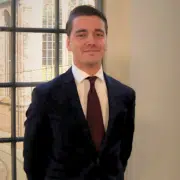As the festive season approaches, we want to extend our gratitude to HCSS’ dedicated followers by presenting a thoughtfully curated assortment of top-notch book and podcast recommendations, just in time for the holiday festivities! Each winter, our team of staff and interns collaborates to suggest a handpicked collection of books and podcasts ideal for indulging in cosy fireside reading.
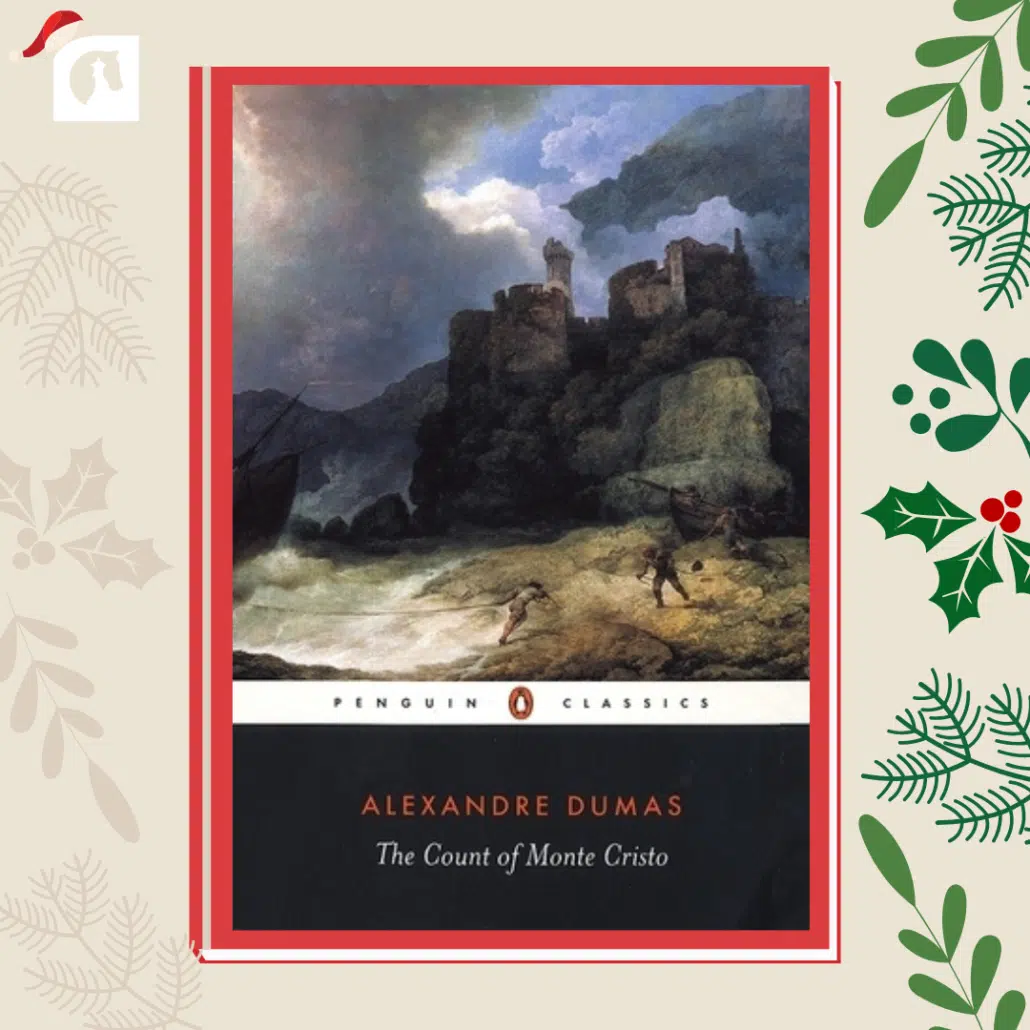
Strategic Analyst Pieter-Jan Vandoren recommends The Count of Monte Cristo by Alexandre Dumas.
Trapped on the couch with gloomy weather outside and awkward family gatherings inside? Look no further. The Count of Monte Cristo by Alexandre Dumas is a monumental tale of betrayal, revenge, and redemption, weaving together themes of hope, forgiveness, and resilience in just under 1,200 pages. In short, it’s the ideal escape during the Christmas holidays. Still need convincing? Reading it now gives you a serious first-mover advantage over friends who’ll flock to see the blockbuster movie remake set to release early 2025 (in the Netherlands). Dive in now and get ahead of the curve!
Strategic Advisor Defence and Security Patrick Bolder recommends The Future of Geography: How Power and Politics in Space will change our World by Tim Marshall.
Geopolitical isn’t any more confined to the sea and below, the Earth and atmosphere but also extends into space. Space is and will increasingly become a domain for collaboration and competition, possible also for conquest. It is not completely lawless but the lack of rules and norms and the current tendency to question or even dismiss such much needed boundaries are worrisome at least. Meanwhile our dependency on unobstructed access to space has increased. Here are the ingredients for future conflict and Tim Marshall explains why it matters to us, and why it matters now.
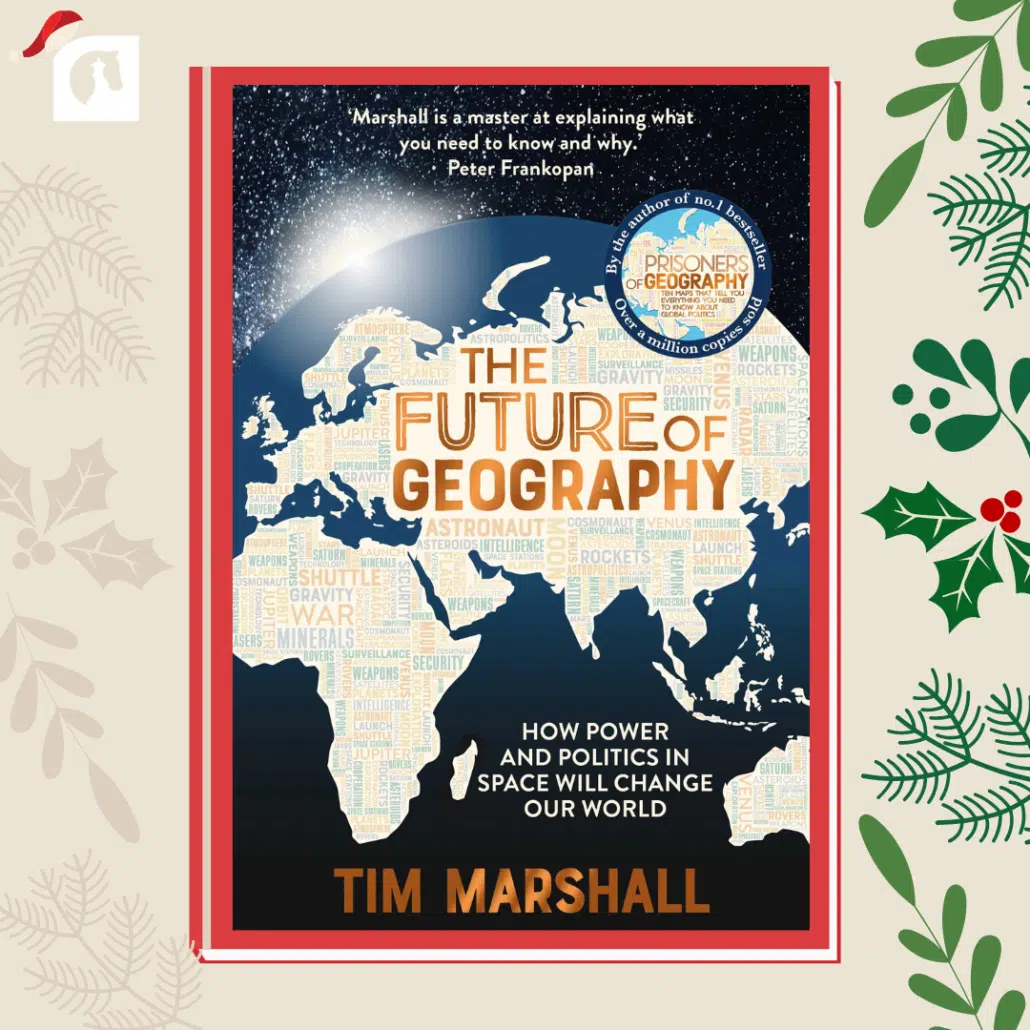
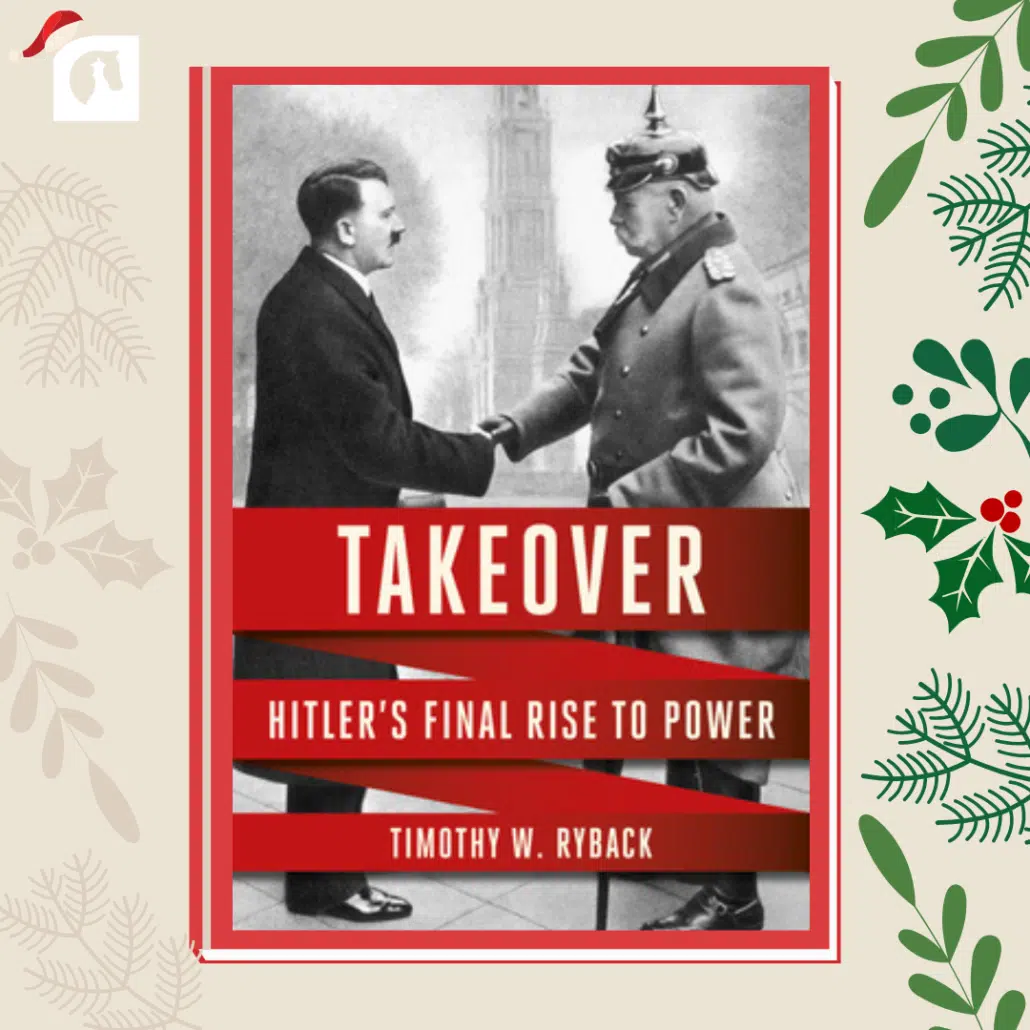
Strategic Advisor Intelligence and Security Pieter Bindt recommends Takeover: Hitler’s Final Rise to Power by Timothy W. Ryback.
An aggressively specific chronicle of a single year, 1932, seems a wise, even an inspired one. Ryback details, week by week, day by day, and sometimes hour by hour, how a country with a functional, if flawed, democratic machinery handed absolute power over to someone who could never claim a majority in an actual election and whom the entire conservative political class regarded as a chaotic clown with a violent following. Ryback shows how major players thought they could find some ulterior advantage in managing him. Each was sure that, after the passing of a brief storm cloud, so obviously overloaded that it had to expend itself, they would emerge in possession of power. The corporate bosses thought that, if you looked past the strutting and the performative antisemitism, you had someone who would protect your money. Communist ideologues thought that, if you peered deeply enough into the strutting and the performative antisemitism, you could spy the pattern of a popular revolution. The decent right thought that he was too obviously deranged to remain in power long, and the decent left, tempered by earlier fights against different enemies, thought that, if they forcibly stuck to the rule of law, then the law would somehow by itself entrap a lawless leader. In a now familiar paradox, the rational forces stuck to magical thinking, while the irrational ones were more logical, parsing the brute equations of power. And so, the storm never passed. You might read some scary similarities with present day politics….
Deputy Director Michel Rademaker recommends De Tech Coup by Marietje Schaake.
Enlightening analysis of how tech companies became more dominant over time in our democracies.
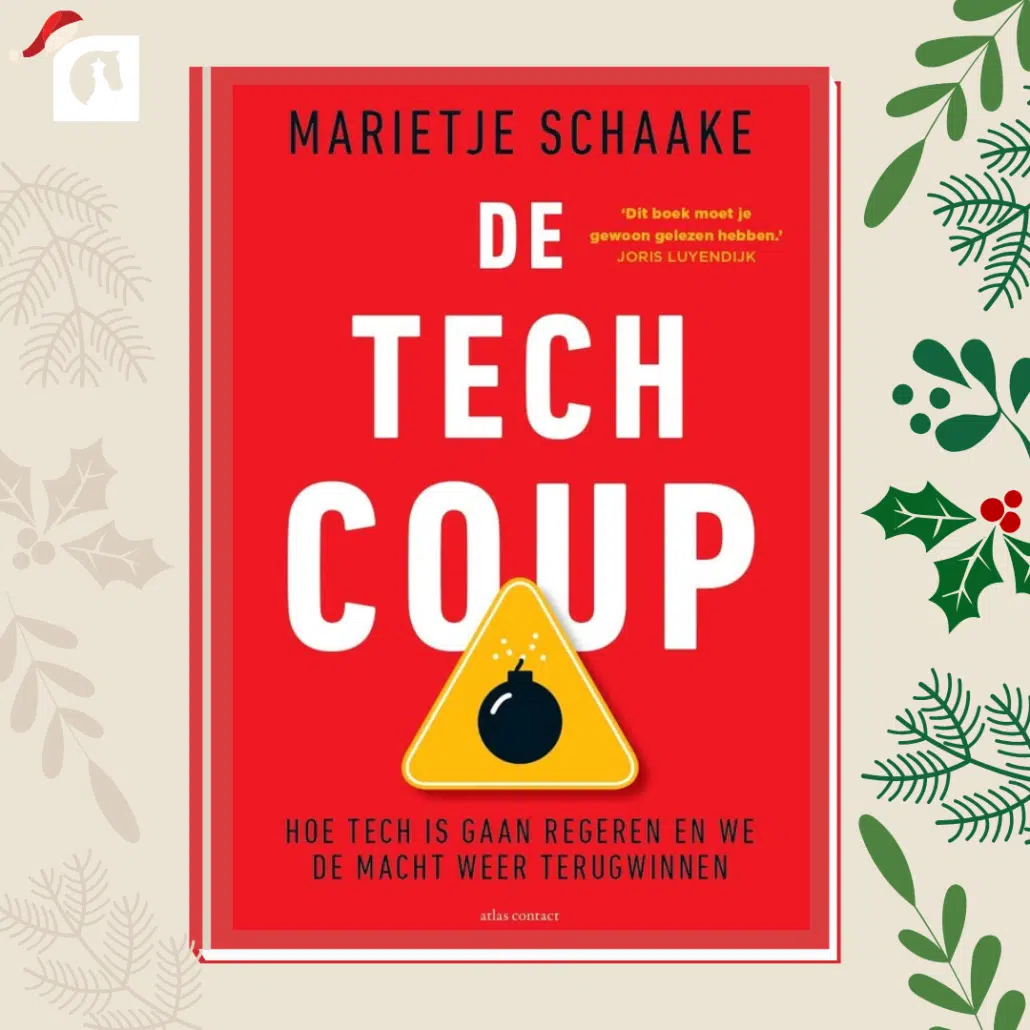
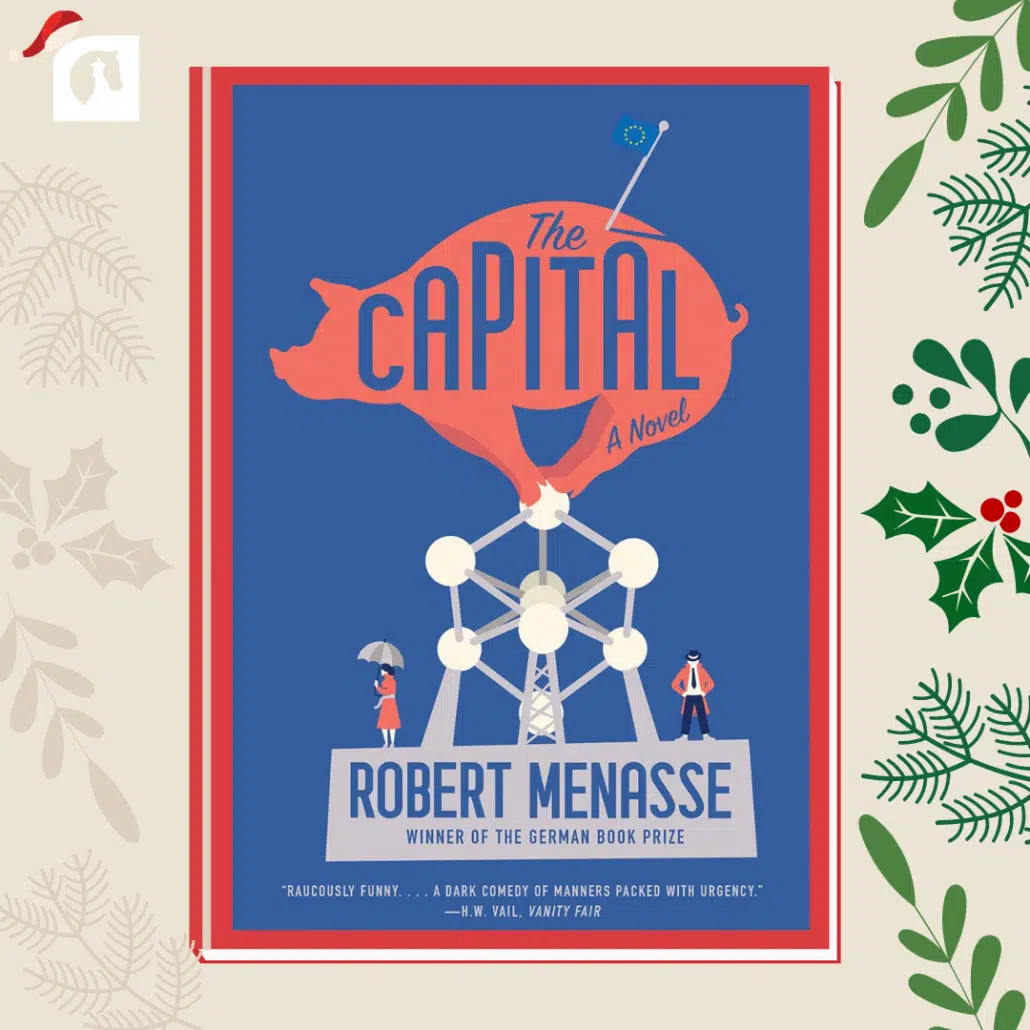
Strategic Analyst Laura Jasper recommends The Capital by Robert Menasse.
We all love Brussels for being the capital and epi-centre of (Belgian) surrealism, but this first-class satirical novel about Brussels’ bureaucracy by Austrian writer Robert Menasse brings surrealism to the next level. Menasse moved to Brussels and takes the reader through a wine-soaked tour of its institutions. Sardonically funny and ever more urgent, this work of fiction balances an analysis on the edge of the EUs weaknesses and remaining strengths. Above all it provides a human portrait of Europe through the eyes of its peculiar protagonists.
Senior Fellow Defence and Security Hans van der Louw recommends The Unforgiving Minute: A Soldier’s Education by Craig M. Mullaney.
US Army Captain Craig Mullaney describes his feelings (and actions) as a young officer deployed to Afghanistan when one of the soldiers under his command dies. Mullaney used his experiences in battle as a teacher, scholar and professional, both in and out of the military. Must read for all of us who were in battle and share Mullaney’s (in)securities and for those who would like to better understand the challenges of combat. Much more than a soldier’s novel, it is a guide on leadership and leading by example.
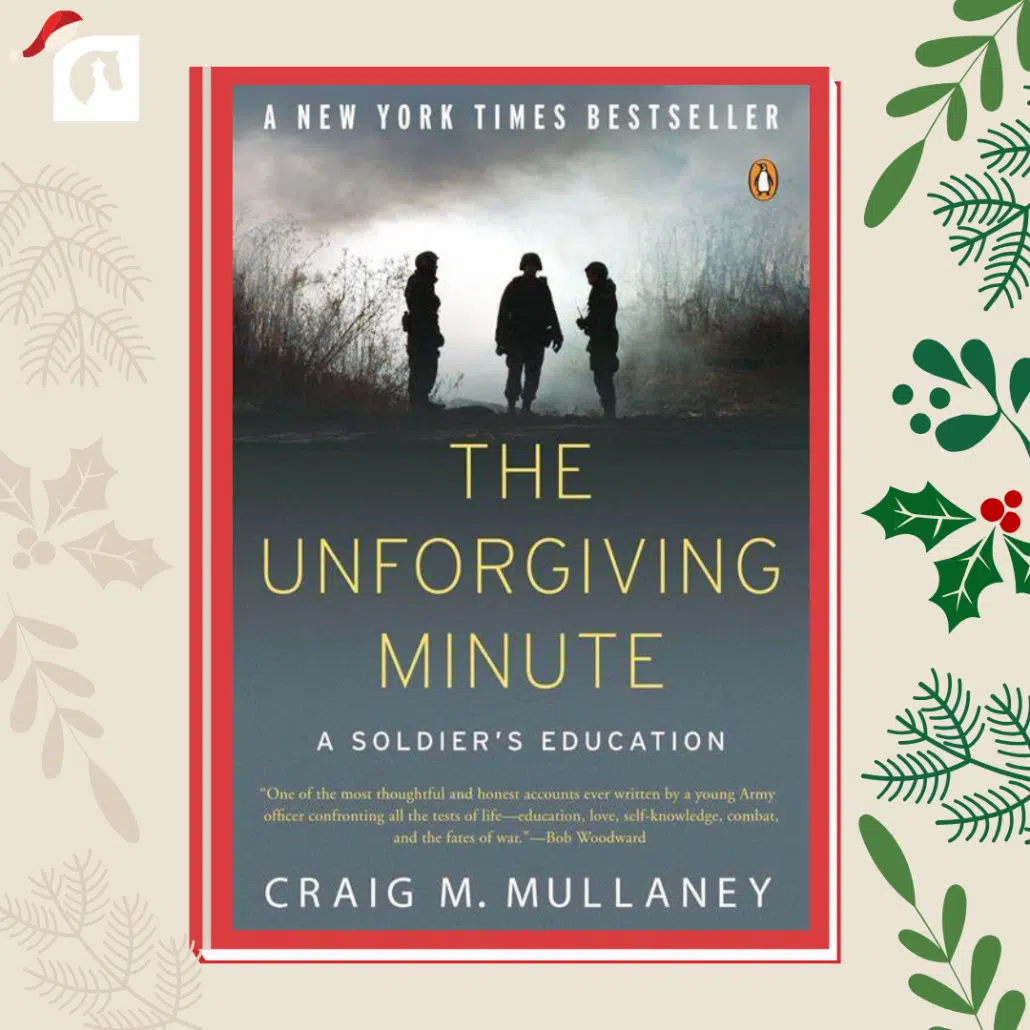
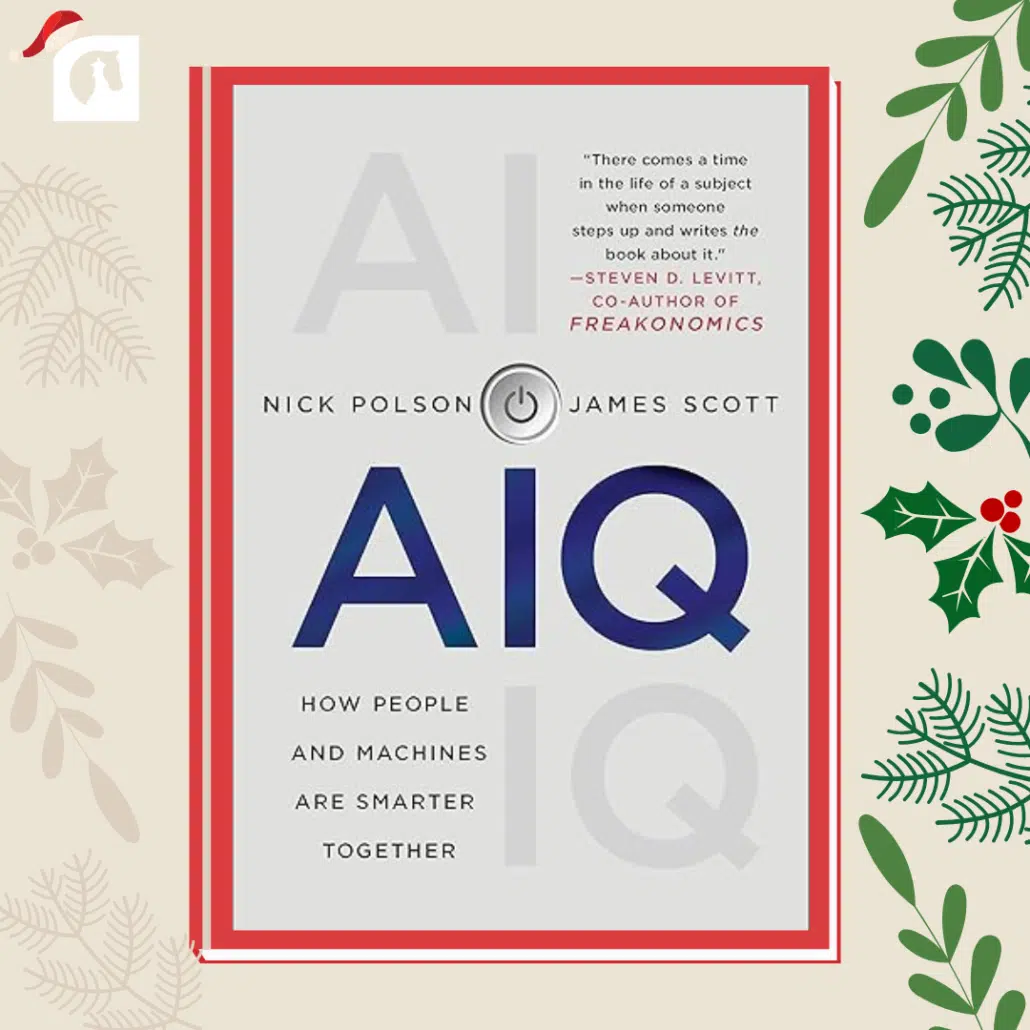
Strategic Analyst Jesse Kommandeur recommends AIQ: How People and Machines are Smarter Together by Nick Polson and James Scott.
Although not the latest publication, AIQ provides timeless insights into the foundational concepts behind Artificial Intelligence, some of which trace back centuries. Polson brilliantly weaves together historical developments with AI applications that were considered modern at the time of writing, offering a unique perspective on how principles of probability and statistics have evolved into the AI technologies we see today. It’s an engaging and accessible read, making it ideal for those looking to understand some of the AI while reflecting on its potential for the future.
Strategic Analyst Davis Ellison recommends The Sympathizer by Viet Thanh Nguyen.
I’m a late-comer to this 2015, Pulitzer prize winning novel by Viet Thanh Nguyen, which has just recently become a series on HBO. Centered on a Communist spy in South Vietnam who becomes a sleeper agent in the U.S. after the 1975 fall of Saigon, it is a darkly funny take on what were brutal events. It’s genuinely one of the best books I have ever read. It’s rare to find a single novel that simultaneously satirizes and criticizes war, racism, empire, and tensions within personal loyalties all in one. In its final, brutal end, it is a story about how very good people wind up swept into dark events, and become complicit in things they could have never imagined.
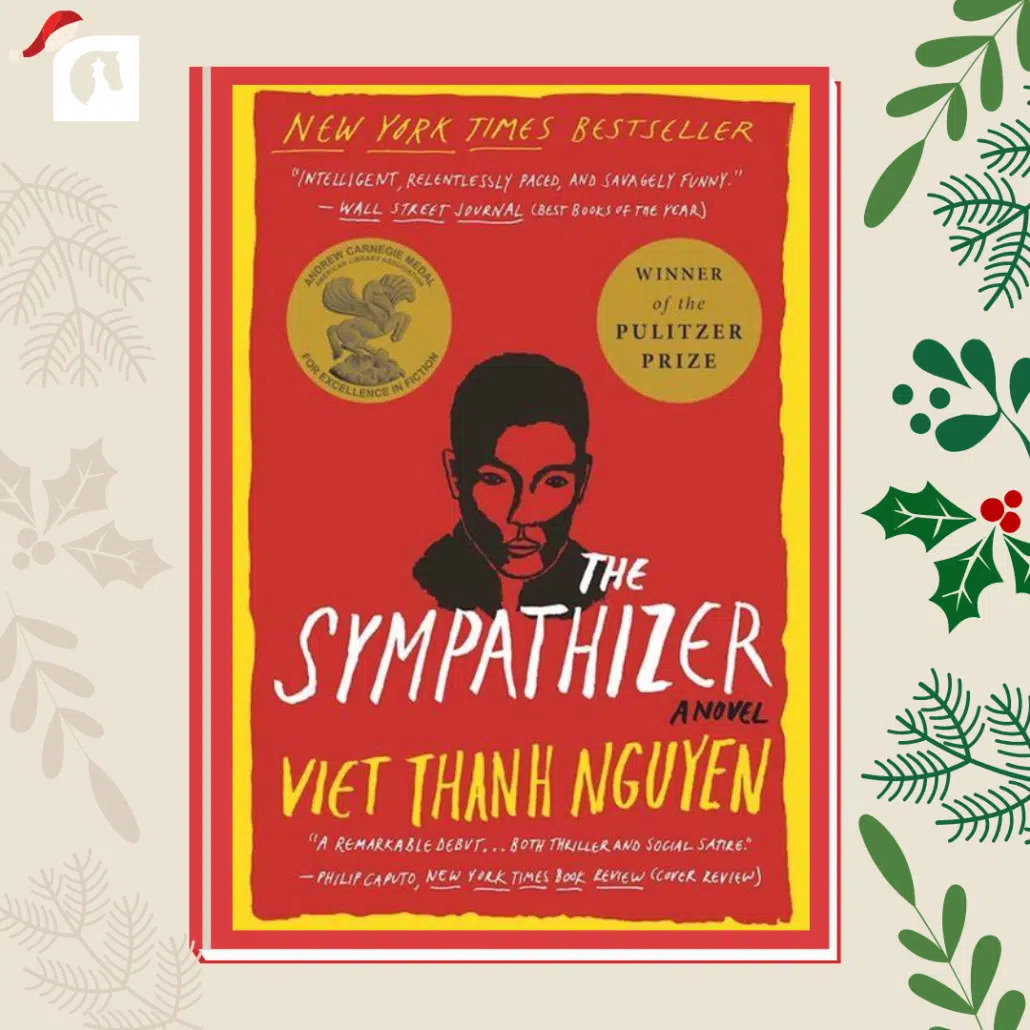

Senior Fellow China and Geopolitics Friso Stevens recommends The Arms of the Future: Technology and Close Combat in the Twenty-first Century by Jack Watling.
The Ukraine War demonstrates that the relative strengths of the ‘iron triangle’ of firepower, protection, and mobility have changed. Defense appears to have regained dominance over the offense, raising important questions about the viability of the Western way of war based on maneuver warfare. From advances in radar technology and electronic warfare to the elements of time and speed in counter-battery fires with the omnipresence of drones, Jack Watling’s Arms of the Future offers a deep analysis of how enabling technologies have changed today’s battlefield. It is a must-read for defense and security professionals, as procurement and doctrine changes should be made accordingly.
Data Scientist Maarten Vonk recommends Playing with Reality: How Games have Shaped our World by Kelly Clancy.
Kelly’s book offers an incredible exploration of the role of games in human history. She not only provides a captivating historical account of why humans have always enjoyed playing games but also meticulously explains how evolving mathematical concepts have led to the study of game theory. Furthermore, she demonstrates how these refined game-theoretical concepts have significantly shaped our world. In doing so, Kelly doesn’t shy away from discussing the potential misuses that can arise from neglecting the gap between theory and practice.


Data Science Officer Rens van Dam recommends De Zwijger: Het leven van Willem van Oranje by Rene van Stipriaan.
Wie was onze Vader des vaderlands? Een boek om bij het haardvuur te lezen, dat is De Zwijger zeker. Rene van Stipriaan pluist met dit boek uit 2021 de persoon en het leven van Willem van Oranje uit. Ook om te begrijpen hoe Nederland is gekomen waar het nu is, is dit boek zeer interessant. Ik heb het pas gelezen en ben onder de indruk van de analyse – het geeft een zeer volledig beeld van de diplomatiek ingewikkelde tijden rondom de beeldenstorm en de totstandkoming van Nederland, evenals wie Willem van Oranje als persoon was – want die bijnaam ‘de zwijger’ heeft hij niet voor niets gekregen.. Een aanrader!
Assistant Analyst Daniela Iampolsca recommends The Golden Passport by Kristin Surak.
What if the rules of global mobility didn’t apply to you? In The Golden Passport: Global Mobility for Millionaires, sociologist Kristin Surak pulls back the curtain on the booming business of citizenship-by-investment programs. This groundbreaking book exposes how the ultra-rich buy their way across borders, using their wealth to access exclusive rights and privileges that most of us could only dream of. How do governments justify selling their national identity? What do billionaires gain from multiple citizenships? This book explores the global political and economic dynamics that fuel these programs, revealing their profound impact on inequality and governance. If you love investigative journalism and real-world intrigue, this is your next must-read.

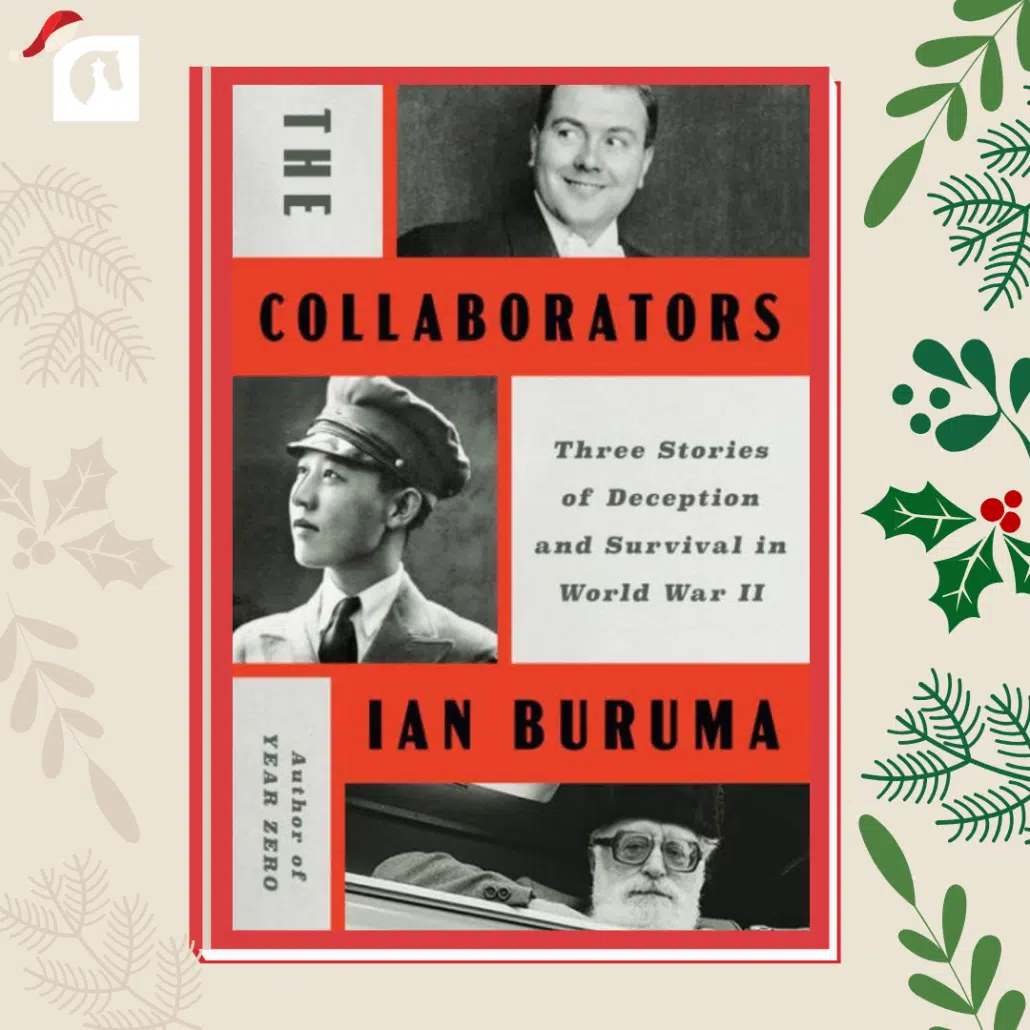
Strategic Advisor International Affairs Kees van Rij recommends The Collaborators: Three Stories of Deception and Survival in World War II by Ian Buruma.
In 2022 verscheen “The Collaborators” van Ian Buruma, en in datzelfde jaar de Nederlandse vertaling onder de titel “De fantasten”. Het gaat over drie geheel verschillende personen die, in de periode van de Tweede Wereldoorlog in Nederland en Duitsland, China en Japan, met list, verraad en bedrog onder de bezetting door Nazi-Duitsland en Keizerlijk Japan poogden vervolgden en in het nauw gedreven mensen hoop te geven maar hen in feite met leugens misleidden, om daar zelf beter van te worden. Een interessant inzicht in de wijze waarop keuzes door sommige mensen worden gemaakt in tijden van bezetting en politieke hoogspanning onder vreemde mogendheden, en hoe men zich vervolgens in een web van zelfbedrog, verzinsels en leugens verstrikt. Felix Kersten als masseur van Himmler die na de oorlog verzon dat hij Himmler zou hebben overtuigd dat hij al masserend de deportatie van de hele Nederlandse bevolking naar Polen en de bezette gebieden in de Sovjet Unie had tegengehouden; Kawashima Yoshiko als Mantsjoeprinses en als spion werkzaam voor de Japanse politie; en Friedrich Weinreb die Nederlandse Joden beweerde te beschermen maar ze feitelijk met loze beloften misleidde en verraadde. Goed geschreven, en overtuigend, degelijk en nuchter met feiten onderbouwd. Ian Buruma is een meester in het onderkoeld en licht ironisch observeren van de werkelijkheid.
Strategic Analyst Irina Patrahau recommends Foundation by Isaac Asimov.
A classic science fiction book, Asimov’s Foundation explores a world where humans can use mathematics to predict the future. When Hari Seldon finds out that a dark age expected to last 30,000 years is about to start, he gathers the world’s key scientists and scholars on another planet to make sure that the knowledge and scientific breakthroughs are preserved and can continue to flourish. The book is particularly interesting as it focuses on critical political, societal or economic moments spread over hundreds of years rather than on main characters in one period, really showcasing the evolution of this newly established society. The Foundation is part of a larger series, but the first book can also be read by itself to experience Asimov’s famous storytelling skills.
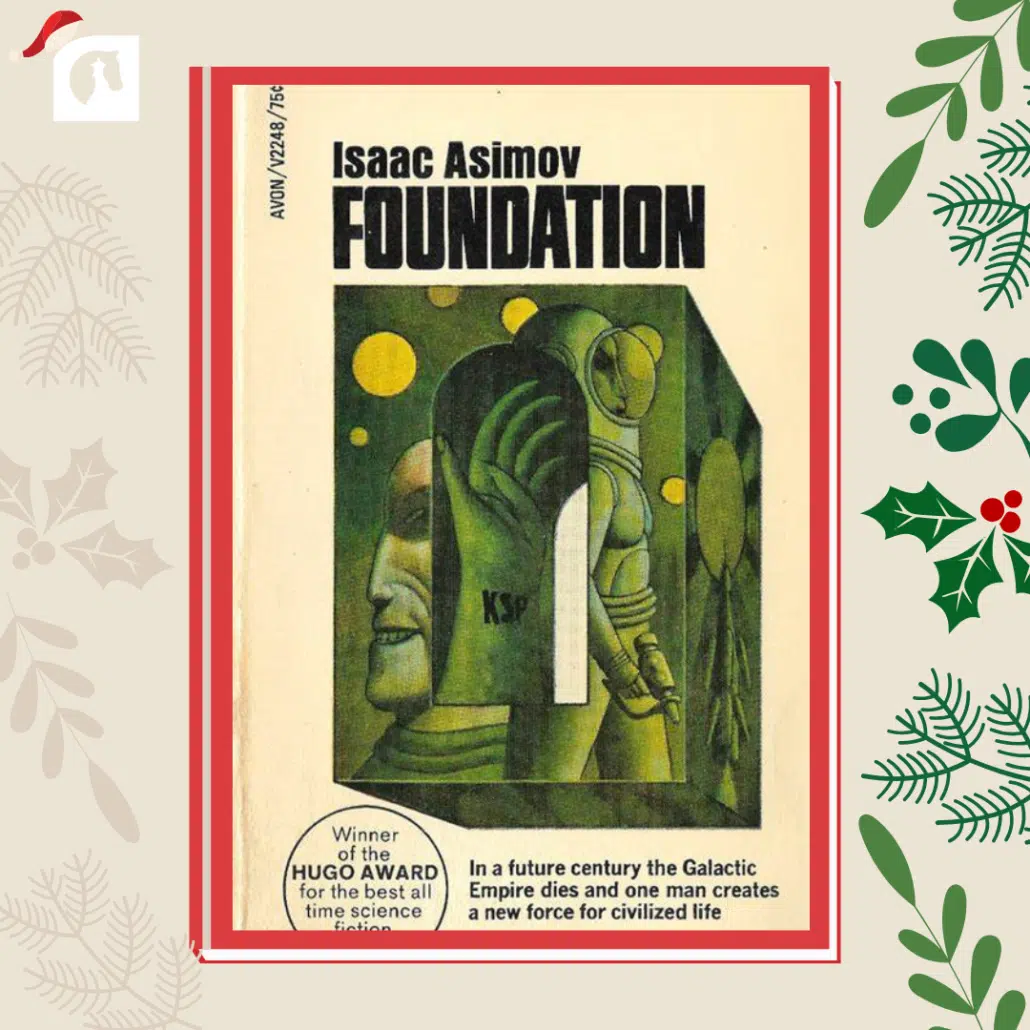

Communications Manager Patrick Willemsen recommends Sneaker Wars by Barbara Smit.
Sneaker Wars’ by Barbara Smit is a fascinating true story about the fierce rivalry between brothers-turned-enemies Adi and Rudi Dassler, founders of the brands adidas and Puma, whose multi-decade competition started modern sports marketing. Family betrayals, brilliant advertising campaigns, Nazis, expensive contracts for celebrities, and backstabbing behind-the-scenes deals with dictators – this is more than just a book on sportswear.
Strategic Advisor Defence and Security Peter Wijninga recommends Konvooi: Reizen naar een land in oorlag by Tommy Wieringa.
Wieringa beschrijft de reis die hij met een konvooi van terreinwagens met medische hulpgoederen onderneemt naar het in oorlog verkerende Oekraïne. Aan het front spreekt hij met Oekraïners die met de moed der wanhoop tegen de Russen vechten. Hij legt daarbij een link met eerdere oorlogen in het land. De geschiedenis heeft daar diepe sporen achter gelaten en dat is gesneden koek voor Wieringa. Net als in eerdere boeken van zijn hand blijkt hoezeer Wieringa houdt van het uitgestrekte Oekraïense land.
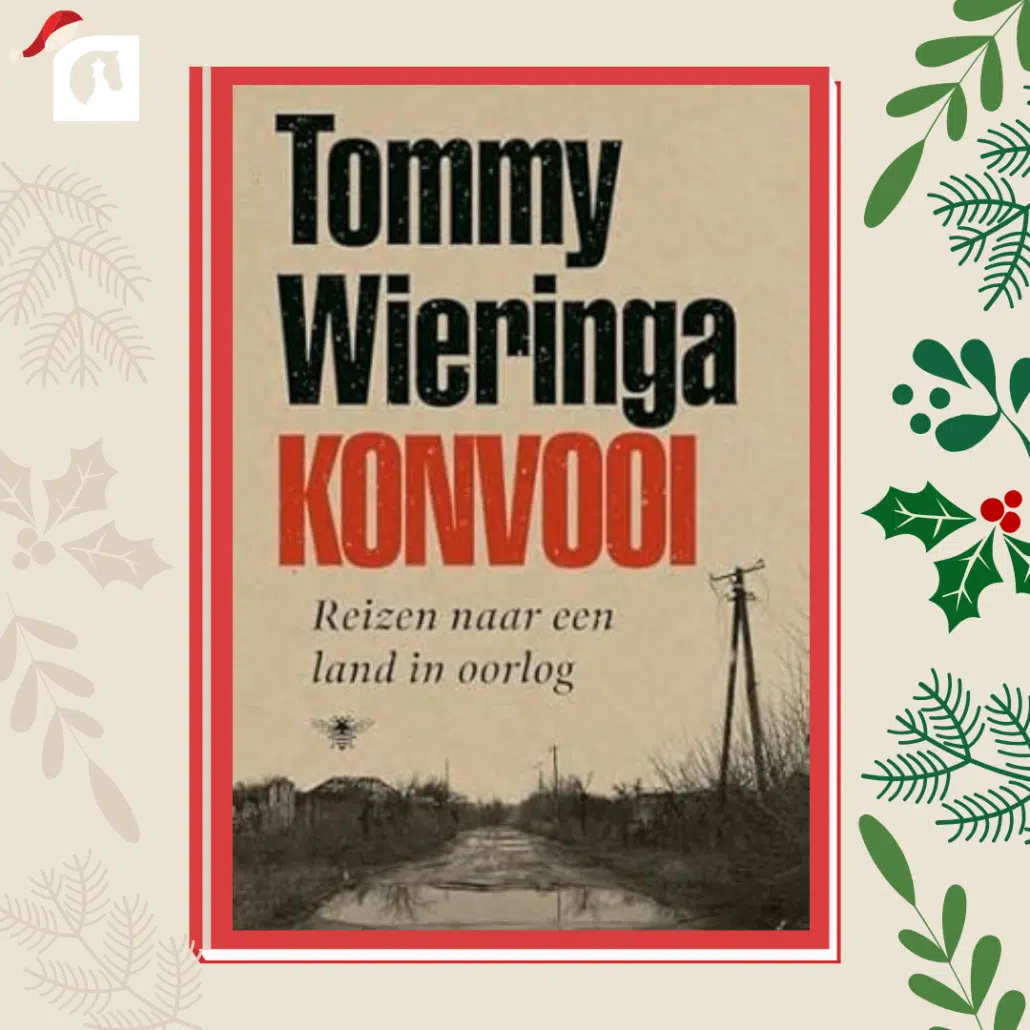
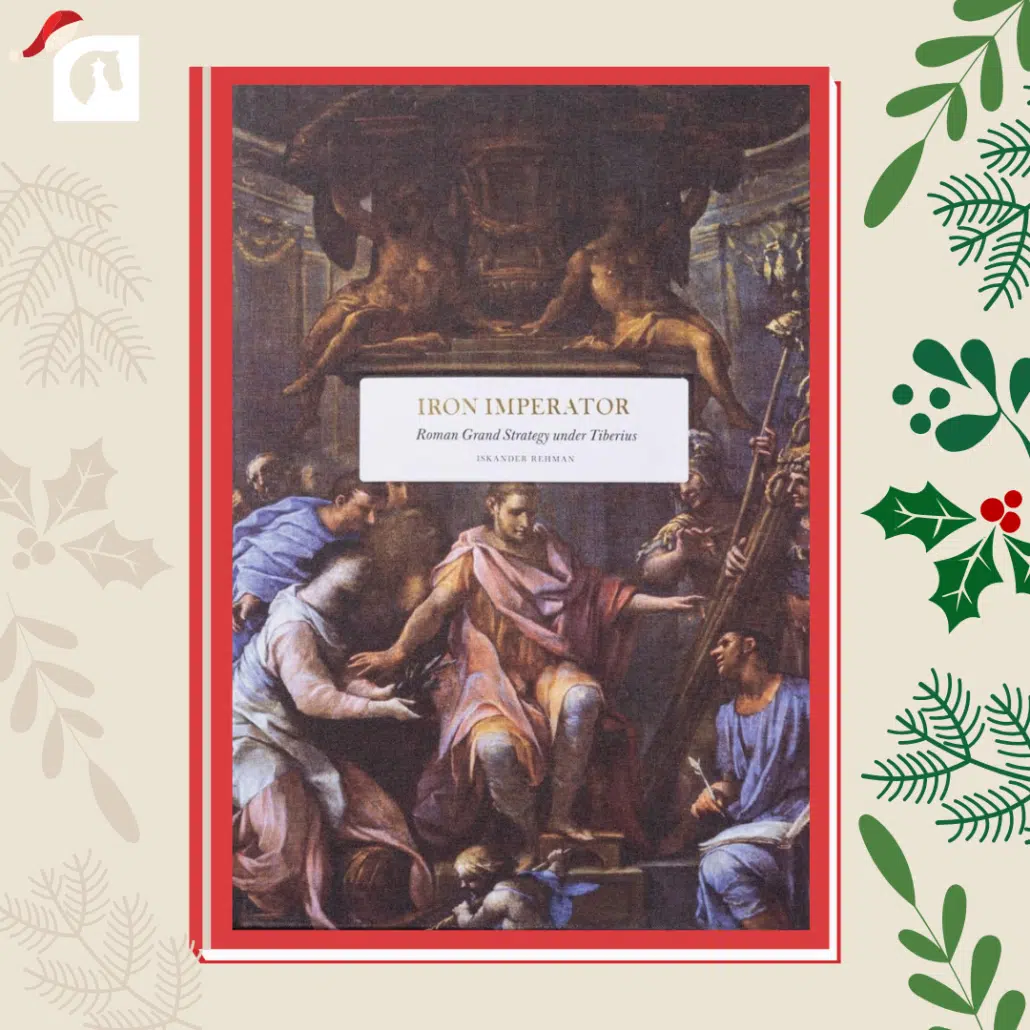
Director of Research Dr. Tim Sweijs recommends Iron Imperator: Roman Grand Strategy under Tiberius by Iskander Rehman.
A remarkable book: deeply researched, elegantly written, full of valuable insight, beautifully designed, and a joy to read. Iskander Rehman revisits the life and times of Tiberius, showing how beneath his sometimes vile reputation, the emperor was first and foremost a phenomenal grand strategist who knew when to consolidate Rome’s power, when to crack down on its enemies, but also when to choose co-existence in light of finite resources. A self-proclaimed work of ‘applied history’, it holds plenty of relevant lessons for the incoming US presidential administration.
CEO Paul Sinning recommends China’s Superbank by Henry Sanderson and Michael Forsythe.
If you want to learn more about the methods Beijing is using uneven trade relationships to ensure geopolitical advantage, this book is a must read! There are a lot of countries in Latin America and Africa willing to give China a good geopolitical ROI.
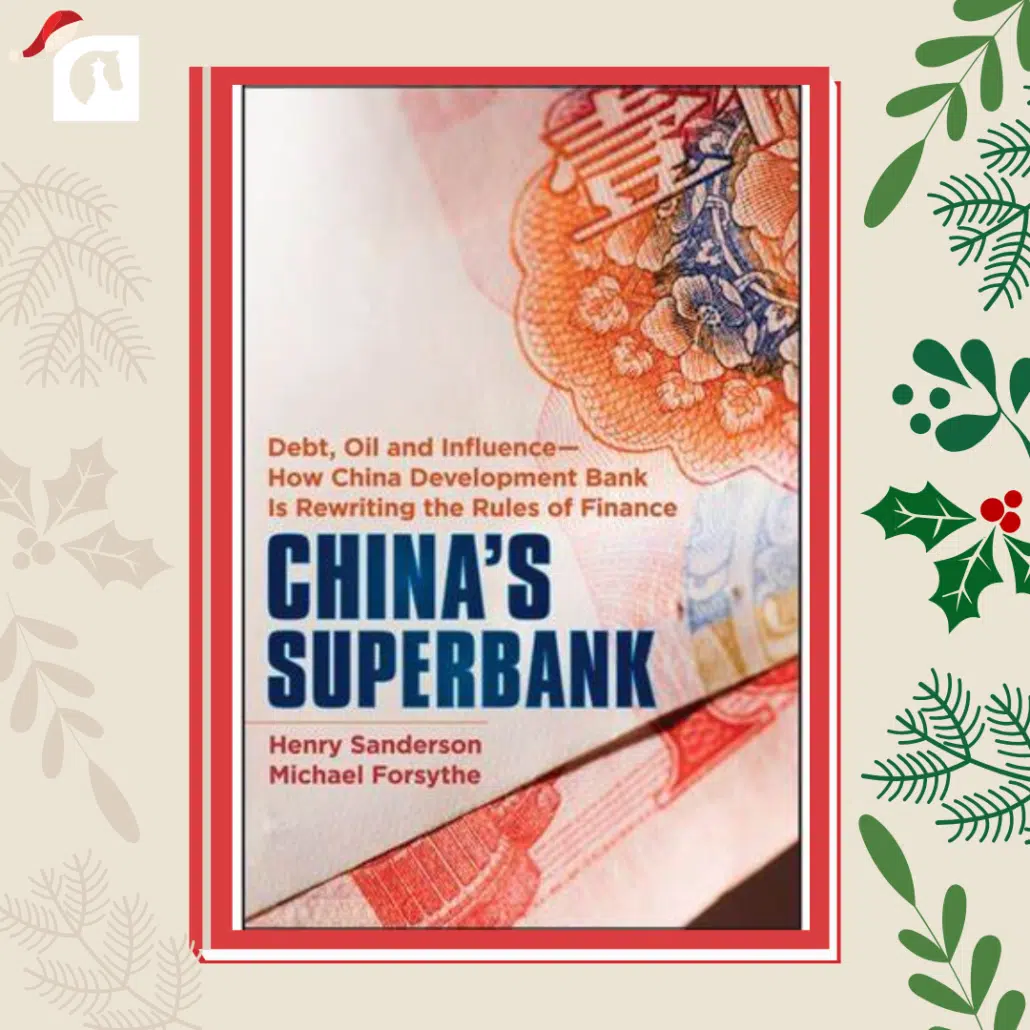
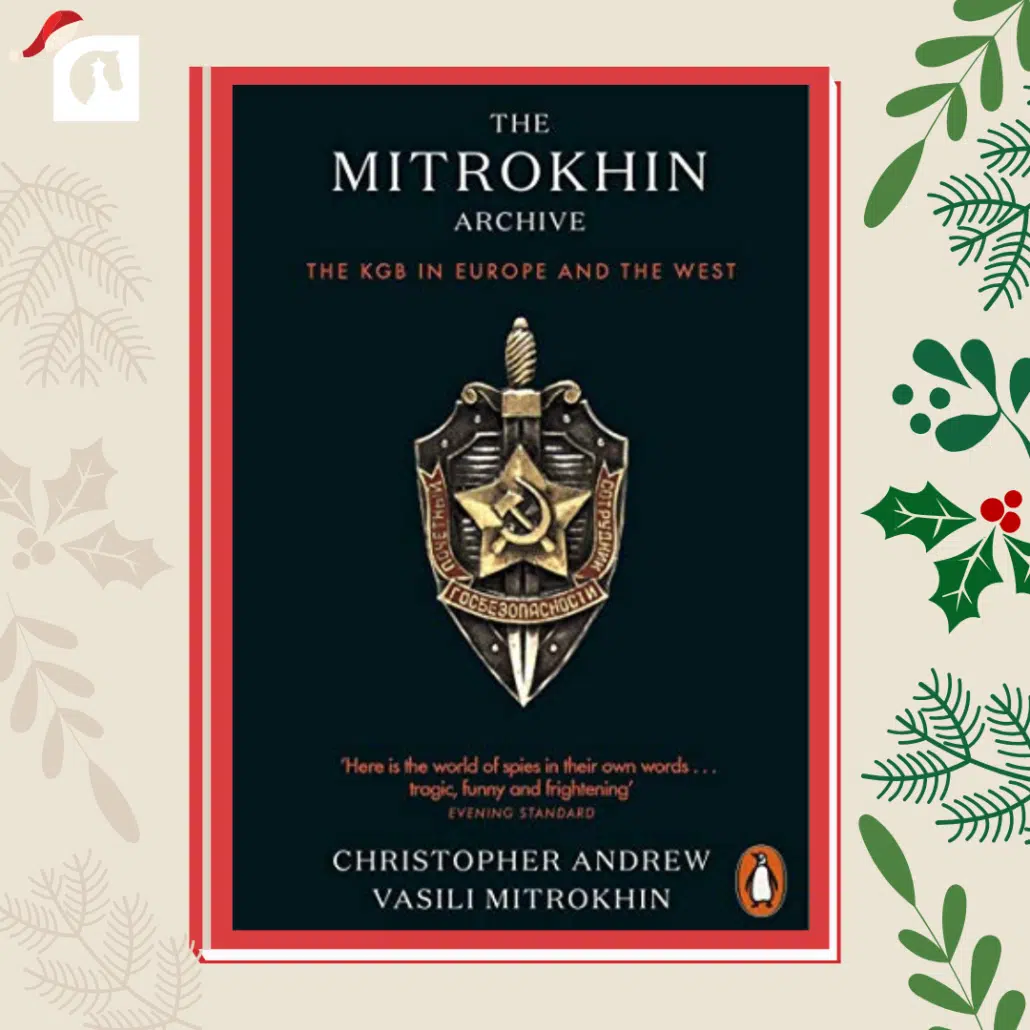
Senior Fellow Russia and Kremlin Helga Salemon recommends The Mitrokhin Archive: The KGB in Europe and the West by Christopher Andrew and Vasili Mitrokhin.
Hardly a day passes by or we’re spooked again with alarming Russian ploys to undermine the US and the EU: disinformation, hacks and cyberattacks, espionage and sabotage, they’ve become a daily part of the news. Since his failed ‘Blitzkrieg’ in Ukraine, Putin’s Russia has started a hybrid war with the West. So this classic work based on the KGB archives smuggled out of Russia, is precisely what you need to understand former KGB-officer Putin’s current game…and prepare yourself!
Communications and Events Officer Stephanie Govaerts recommends The Disorder Podcast hosted by Jason Pack and Alex Hall Hall, produced by Goalhanger.
If you’re looking for a podcast to try and help you make sense of the world we’re living in, then this is the podcast for you. The Disorder podcast focuses on the idea that we are living in an era of ‘global enduring disorder’, one where states that used to work together to solve complex crises, are now feeding off of the chaos that ensues. The podcast covers everything from climate change to unregulated cyberspace, to Neo-Populism, to the wars in Ukraine or Libya and more. Not only do the hosts of the podcast cover current topics, but they also propose innovative solutions while being able to provide their listeners with witty comedic relief. For those that sometimes feel as if the world is beyond repair and all hope is lost, this podcast offers an entertaining light at the end of the tunnel.
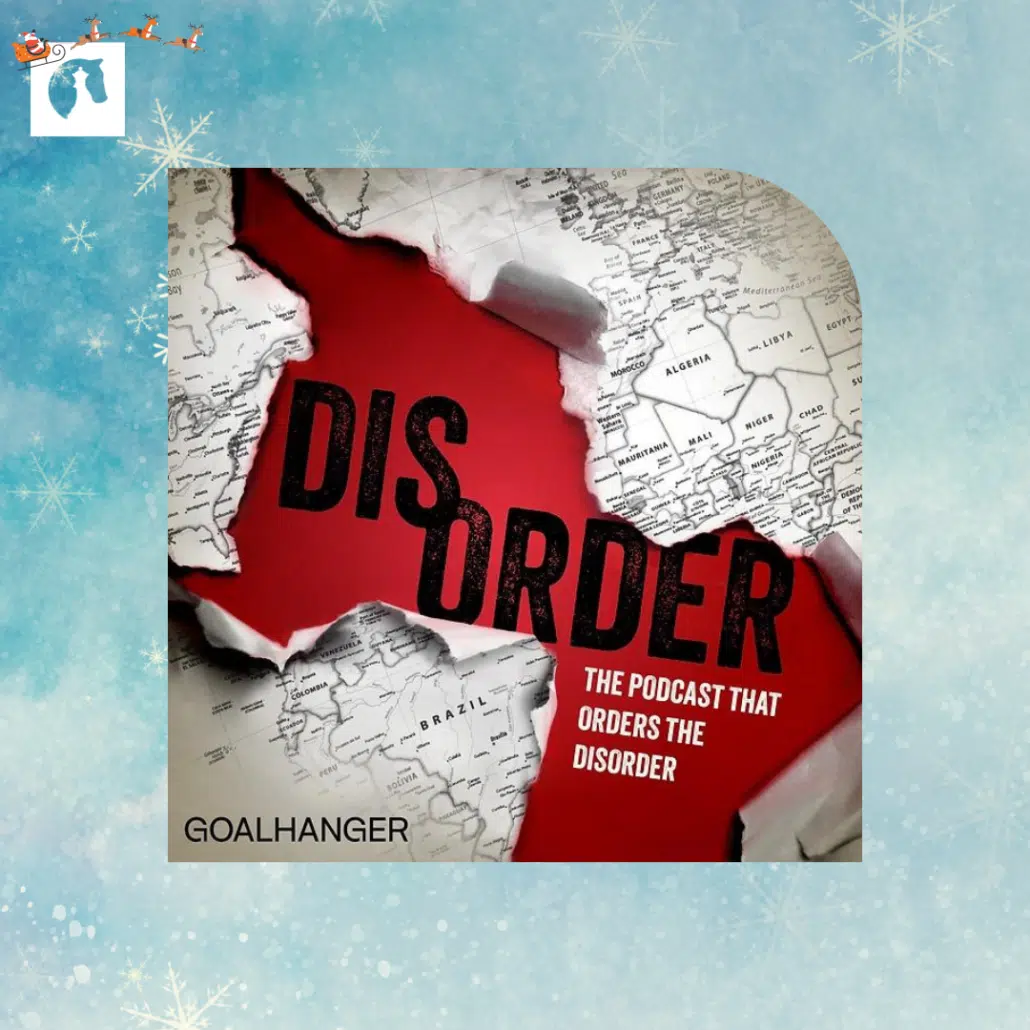

Strategic Analyst Irina Patrahau recommends Energy Exchange Podcast hosted by Jason Bordoff and Bill Loveless, produced by Columbia University.
The energy and climate sectors are complex, constantly evolving and, in today’s world, inherently geopolitical. Hosted by Jason Bordoff and Bill Loveless from the Center on Global Energy Policy at Columbia University, the Columbia Energy Exchange podcast features conversations with leading experts, policymakers, civil society and industry that unpack, discuss and debate the most pressing energy and climate related issues.
Assistant Analyst Ana Dadu recommends The Making of Modern Ukraine Podcast hosted by Timothy Snyder, produced by Yale Podcasts.
Ukraine must have existed as a society and polity on 23 February 2022, else Ukrainians would not have collectively resisted Russian invasion the next day. What does it mean for a nation to exist? Where does Ukraine’s identity stand, between East and West? How does Ukraine’s development as a nation look like from a global history perspective? And how does this all play out today? Professor Snyder explores these questions in his Yale University classroom, posted and freely available on YouTube.
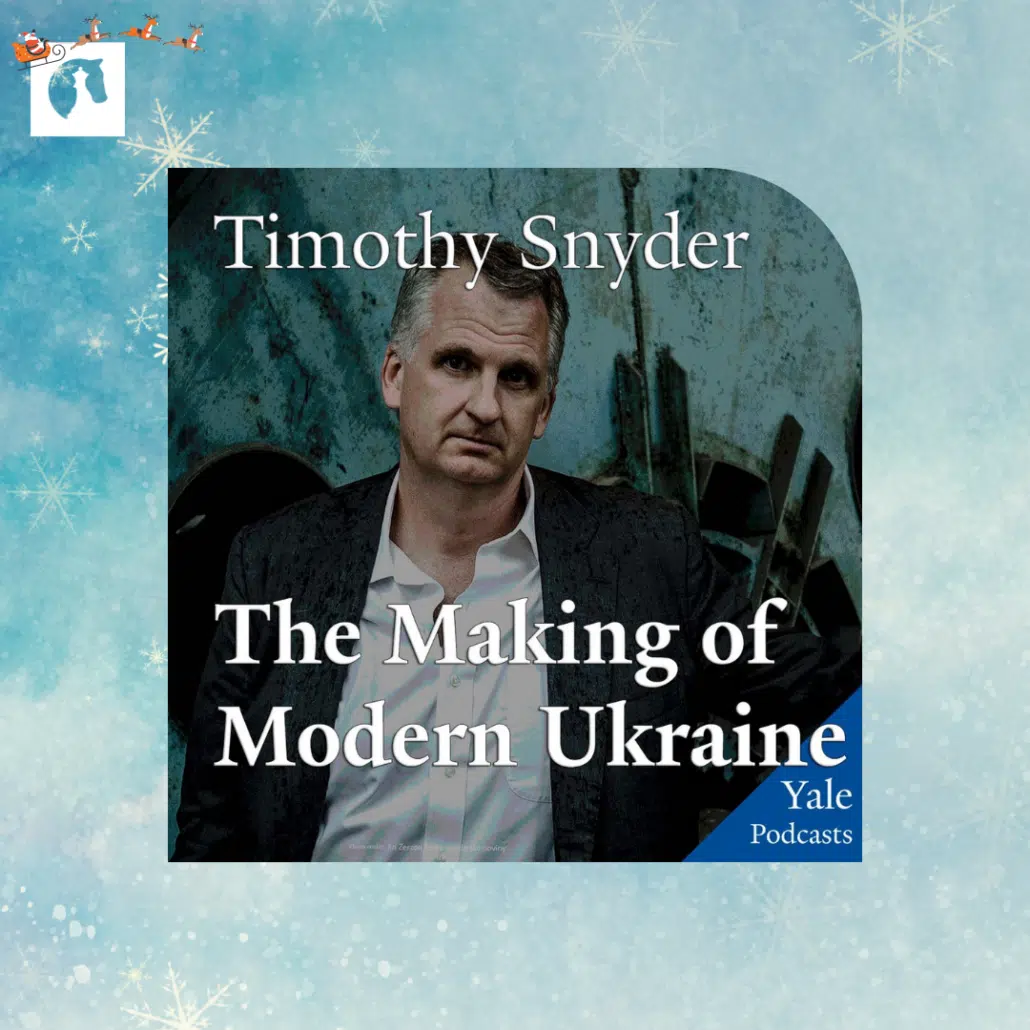

Our last recommendation comes from Project Management Officer Berend Kwak who recommends Geschiedenis Inside Podcast hosted by Gijs van Engelen and Thomas van Luyn, produced by Tonny Media.
This is a Dutch podcast, covering a range of historical figures (from Napoleon to Lenin to Dzjengis Khan to Elvis). Hosts Gijs van Engelen and Thomas van Luyn take a deep dive into the lives of these figures and the intricacies of their time, using everything people on the street think they know about them. The hosts aim to answer: are the common stories true, or was it all slightly different? Their findings take you beyond the things covered in your typical history books, bringing a humorous and compelling reflection.








